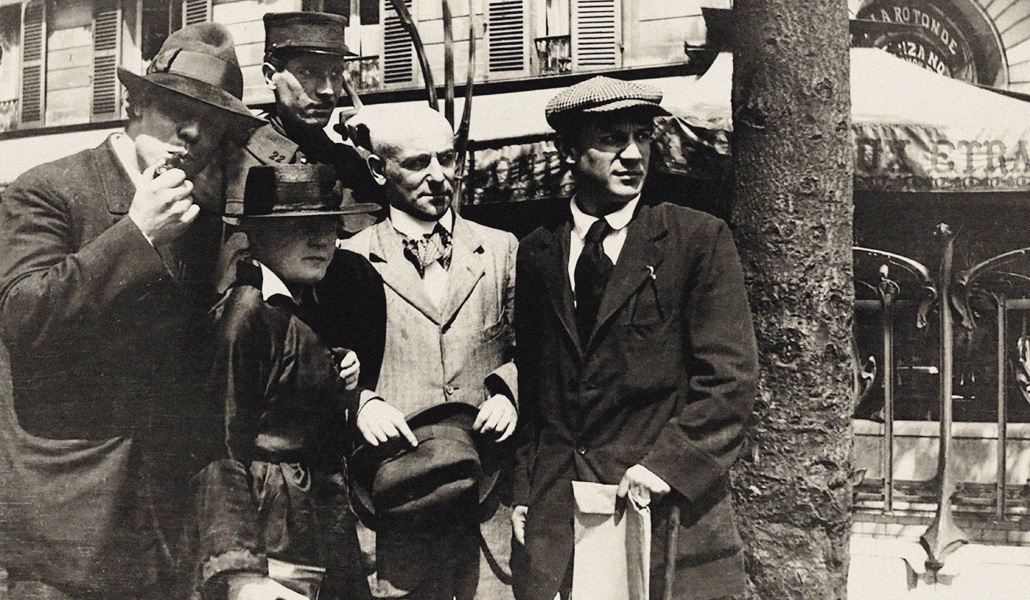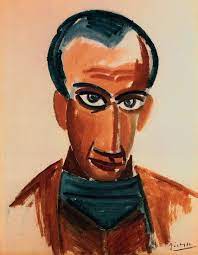
At the beginning of the year, the Musée d'Histoire de l'Immigration in Paris presented an exhibition entitled Picasso, the foreigner. He intended to demonstrate that the painter was not always a recognized artist in France.
At the beginning of the twentieth century he was registered by the police, as he was considered suspicious for frequenting avant-garde environments or for his attitudes close to anarchism. He was even investigated for the theft of La Gioconda from the Louvre Museum in 1911.
Nevertheless, Picasso made good friends with French artists, among them Max Jacob, a Jewish poet and painter who converted to Catholicism. She shared a room with him at Montmartre and advised him to quit his jobs, such as warehouse boy or piano teacher, to devote himself to artistic creation.
This friendship led Jacob to make an unusual request to Picasso: that he be his godfather at his baptism. He believed that, being a Spaniard, his friend would have internalized the faith.
The painter Picasso made a formal profession of atheism throughout his life.and in 1944 he joined the French Communist Party.
His biographers point out that his abandonment of Christianity may have been due to the death of a younger sister, Conchita, from diphtheria, he was only 7 years old. This did not prevent the image of the Crucified from appearing in his paintings and drawings, including those of the cubist period.
He accepted, however, the request, and was the godfather at a Baptism ceremony in the Parisian chapel of Notre Dame de Sion on February 18, 1915. On that day he gave his godson a copy of the Imitation of Christ by Kempis, in which he wrote this dedication: "To my brother Cyprien, Max Jacob, in memory of his Baptism"..
Cyprian was the name chosen by the new Christian, apparently in memory of a bishop of Antioch who was a magician before he was converted. An example of how Pablo Picasso knew how to put friendship before his convictions.
Many years later, in 1941, Jacob, in his Advice to a Young Poet, I would transcribe a recommendation of Picasso: "Think of God and work".

Portrait of Max Jacob (Pablo Picasso)
On the day of the Baptism Jacob missed the presence of Guillaume Apollinaire, the father of surrealism, then stationed in a military garrison in Nîmes. The poet wanted his friends to share his joy, even though they were not believers.
It must be said that Max Jacob's conversion aroused the natural uproar among avant-garde intellectuals, although this did not imply a hostile attitude towards him. All in all, Jacob felt deeply misunderstood and annoyed that some would label him as a new Tartuffe, a false devotee who just wanted attention.
This led him to publish in 1919 Tartuffe's defense. Ecstasies, remorse, visions, prayers, poems and meditations of a converted Jew, a book dedicated to the painter Juan Gris.
Faced with those who doubt his sincerity or consider that he has been disturbed by the effects of the ether or henbane, Jacob recounts his two visions of Christ. In the first, on September 23, 1909, he tells of having seen a man, inserted in the landscape of one of the pictures he was painting, with a yellow tunic and long hair. His back was turned, but he turned for an instant and saw his mouth and eyebrows. Convinced it was Jesus, Jacob had an internal motion that he should convert to the Catholic religion.. He spoke with several priests, but they told him that he should not be too hasty.
Five years passed, and the poet went to a cinema in Montparnasse, on December 18, 1914, to see an adventure film, The black capes bandaccording to a novel by the master of soap operas, Paul Féval. He removed his coat from a seat so that another spectator could sit down, and at the same time he seemed to perceive on the screen a face in a crowd, the same face of his seatmate. He immediately left the theater and went into a nearby church to tell a priest about it. The priest not only did not believe him, but reproached him for frequenting such spectacles. In spite of everything, two months later he was baptized.
On the other hand, the book of Jacob contains some interesting reflections on conversion. Its author aspired to live "with people who would teach him the moral beauty and decency of life.". He wanted to allow himself to be instructed, to tell them about his life and to mourn his faults. He longed to go beyond the circles of transgression, the profession of faith of some intellectuals.
However, he could not find his place and did not dare to turn to God.. They called him a madman, although he claimed that "the Lord is everywhere and in the worst places.".
After being baptized, he realized that he was sinning again. He could not banish pride, gluttony or lust from him, But at the same time his faith made him capable of writing in that same book a poem suggested by the Eucharistic adoration he attended every morning at the Sacré Coeur basilica.
With the collaboration of:
Antonio R. Rubio Plo
Degree in History and Law
International writer and analyst
@blogculturayfe / @arubioplo